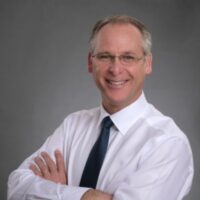
Chris Ragan
Christopher Ragan is an Associate Professor of Macroeconomics and Public Policy at McGill University’s Max Bell School of Public Policy, and from its inception in 2017 through August of 2024 he was the School’s founding Director.
M. Ragan was the Chair of Canada’s Ecofiscal Commission, which from 2014 through 2019 worked to identify policy options to improve environmental and economic performance in Canada. He was also a member of the federal finance minister’s Advisory Council on Economic Growth, which operated from 2016 to mid-2019. During 2010-12 he was the President of the Ottawa Economics Association. From 2010-13, M. Ragan held the David Dodge Chair in Monetary Policy at the C.D. Howe Institute, and for many years was a member of the Institute’s Monetary Policy Council. For 18 months in 2009-10, M. Ragan served as the Clifford Clark Visiting Economist at Finance Canada; during the 2004-05 academic year he served as Special Advisor to the Governor of the Bank of Canada.
M. Ragan’s published research focuses mostly on the conduct of macroeconomic policy. His 2004 book, co-edited with William Watson, is called Is the Debt War Over? In 2007 he published A Canadian Priorities Agenda, co-edited with Jeremy Leonard and France St-Hilaire from the Institute for Research on Public Policy. The Ecofiscal Commission’s The Way Forward from 2015 was awarded the prestigious Doug Purvis Memorial Prize for the best work in Canadian economic policy.
M. Ragan is an enthusiastic teacher and public communicator. In 2007 he was awarded the Noel Fieldhouse teaching prize at McGill. He is the author of Economics (formerly co-authored with Richard Lipsey), which after seventeen editions is still the most widely used introductory economics textbook in Canada. Ragan also writes frequent columns for newspapers, most often in The Globe and Mail. He teaches in several MBA and Executive MBA programs, including at McGill, EDHEC in France, and in special courses offered by McKinsey & Company.
M. Ragan received his B.A. (Honours) in economics in 1984 from the University of Victoria and his M.A. in economics from Queen’s University in 1985. He then moved to Cambridge, Massachusetts where he completed his Ph.D. in economics at M.I.T. in 1989.
